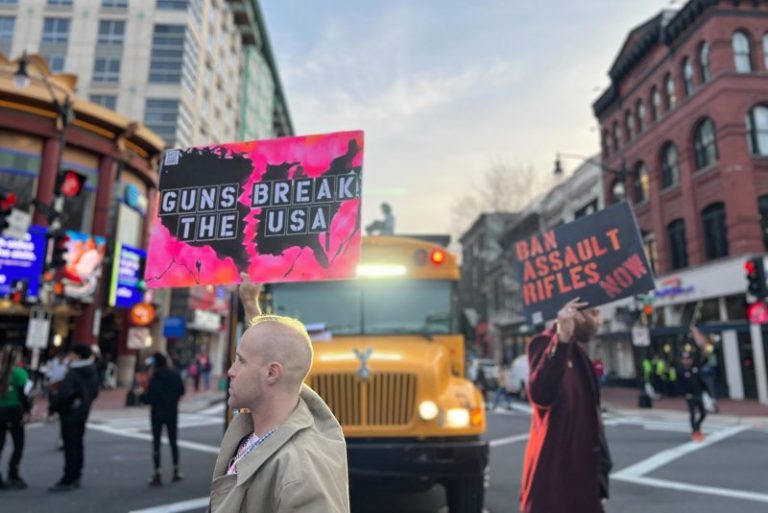A growing number of Americans, including Democrats and Republicans, now view gun violence as a significant problem, and a majority expect it to get worse over the next five years, according to a new poll released Wednesday from Pew Research Center.
While the poll found that twice as many Democrats as Republicans said gun violence is a “very big” problem in the nation, at 81 percent of Democrats compared with 38 percent of Republicans. Pew noted that, over the last year, the number of people in both parties who said gun violence is a “very big” problem has increased 11 percent.
The growing concern about gun violence comes amid an increase in mass shootings. According to a database maintained by USA Today and Northeastern University, the number of mass shootings in the country in 2022 was the second highest since the two institutions began tracking these incidents in 2006. So far this year, 28 mass killings have occurred, according to the database, all involving guns.
Mass killings in Columbine, Colo., Newtown, Conn., Las Vegas and Orlando indelibly marked the nation in the past quarter-century. So far this year, gun violence in Texas, Nashville and Michigan put 2023 on pace to set a modern record. According to the poll, 60 percent of Americans said gun violence is a “very big problem” in the country today, while 23 percent said it is a “moderately big problem.” Thirteen percent said it is a “small problem,” while only 4 percent said gun violence is “not a problem at all.”
The poll found that 62 percent of Americans said that the level of gun violence will increase over the next five years, twice as many as those who said it will stay around the same level. Pew also found that, since 2021, the share of Americans who said violent crime is a major problem has risen from 52 percent to 64 percent among Republicans and from 44 percent to 52 percent among Democrats.
Still, members of both parties remain split over the issue of gun ownership. The poll found that 79 percent of Republicans and independents who lean Republican said gun ownership increases safety, while 78 percent of Democrats and independents who lean Democratic said it decreases safety.
Last summer, President Biden signed into law a bipartisan gun-control bill, the most significant legislative action taken on gun control in three decades, that was the result of negotiations by a handful of Republicans and Democrats on Capitol Hill, led by Sens. Chris Murphy (D-Conn.) and John Cornyn (R-Tex.), in the wake of mass shootings in Uvalde, Tex., and Buffalo.
While members of both parties celebrated the measure, Democrats, including Biden, conceded that the law did not go as far as they or gun-control advocates wanted. In addition to providing funds for mental health services and school security initiatives, the law expands criminal background checks for certain gun buyers, bars a larger group of domestic-violence offenders from purchasing firearms and funds programs that would allow authorities to seize guns from troubled individuals.
According to Pew, the share of Americans who said gun laws should be stricter has shifted only slightly, from 53 percent in 2021 to 58 percent today. While a majority of women, at 64 percent, said gun laws should be strengthened, just 51 percent of men said the same. Notably, 77 percent of Black Americans said gun laws should be stricter, along with 74 percent of Asian Americans and 68 percent of Hispanic Americans. Among White Americans, 51 percent said the same.
Research released in April from KFF found that 42 percent of Black Americans have personally experienced being threatened by a gun, seeing someone injured with a gun or having a family member killed by a gun, including by suicide. Nearly six in 10 Black Americans said a family member has experienced one of those things. For Hispanic Americans, the figure is 54 percent. Less than half of White Americans said a family member has come that close to gun violence, and about a quarter of White Americans said they personally experienced such threats or violence.

